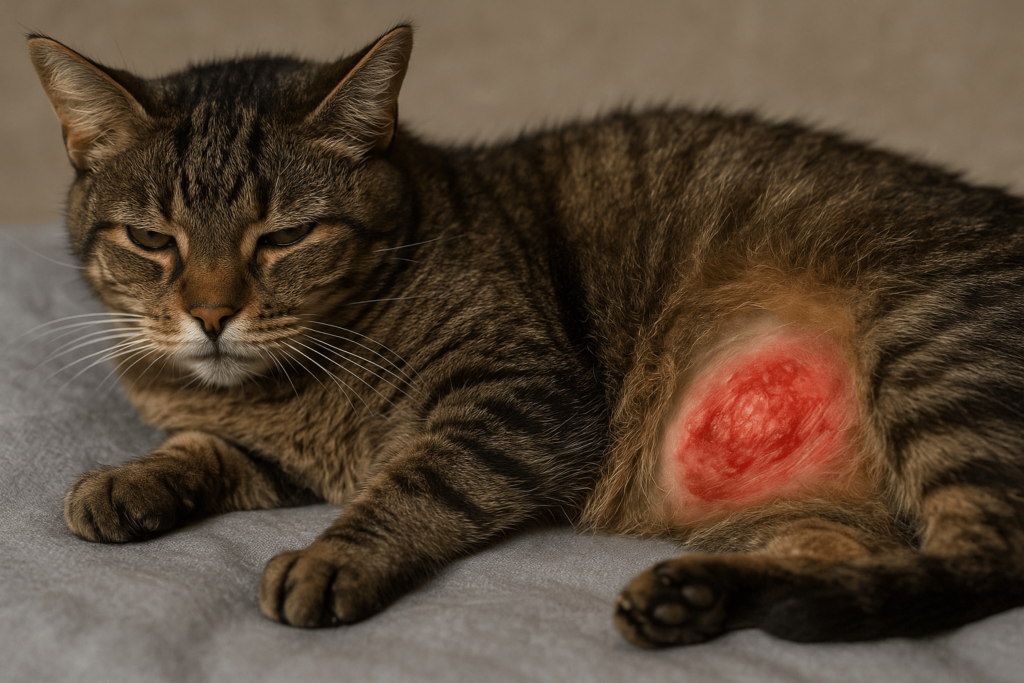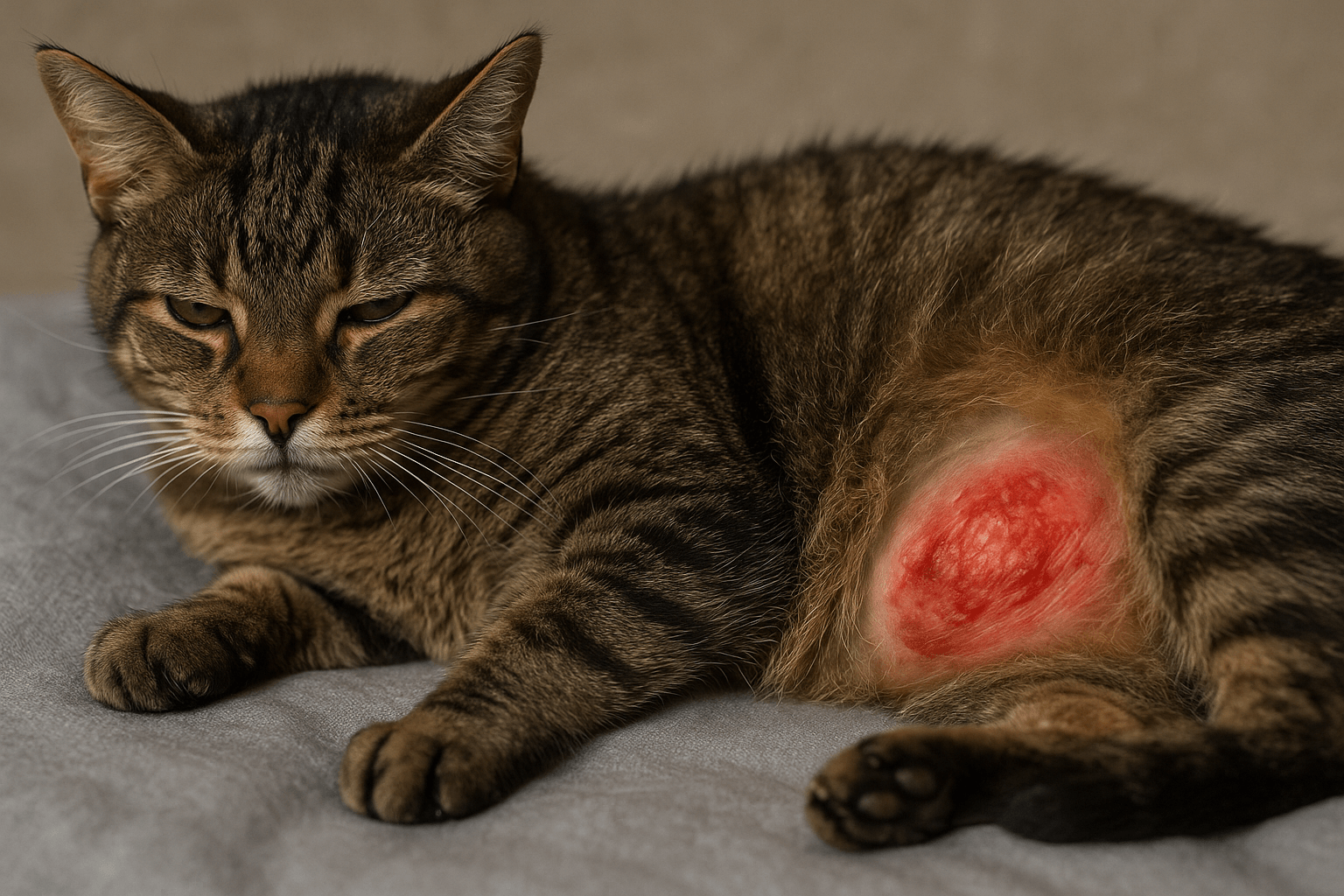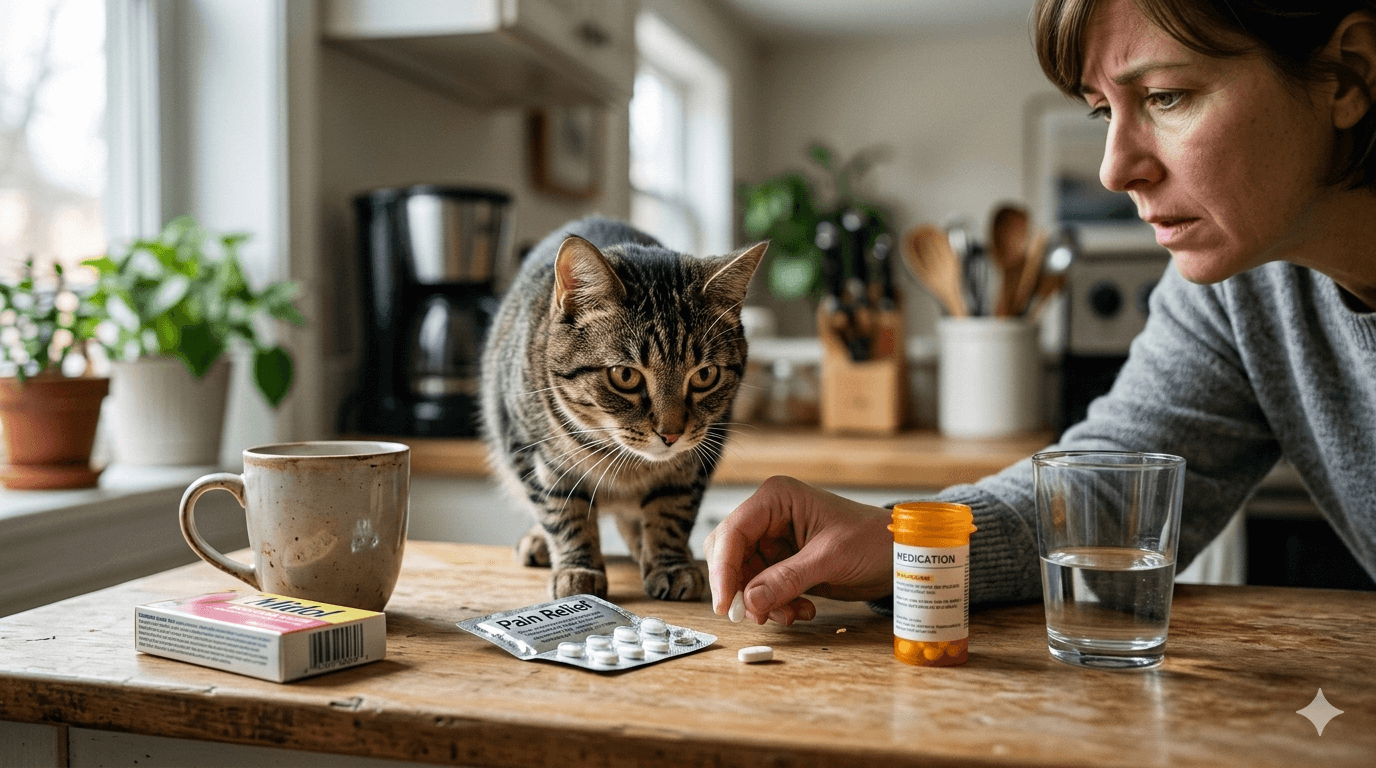Cat Stomach Inflammation: What It Means and How to Help Your Feline Friend
When your cat stops eating, curls up in a quiet corner, or gags without producing anything—something’s wrong. Cat stomach inflammation, or gastritis, isn’t just a minor upset. It’s a signal that their delicate digestive system is under stress. Recognizing the signs early can mean the difference between a quick recovery and a serious health crisis. This guide walks you through everything you need to know—why it happens, how to spot it, and what to do next.
Why Cat Stomach Inflammation Happens
Gastritis in cats isn’t random. It’s the body’s response to irritation, infection, or imbalance. Understanding the root causes helps you act before it escalates.
Ingestion of Foreign Objects:
Cats are curious. Eating string, plastic, or plants can physically irritate the stomach lining and trigger inflammation.Dietary Indiscretion:
Spoiled food, table scraps, or sudden diet changes overwhelm their sensitive digestive tracts.Food Allergies or Sensitivities:
Ingredients like chicken, fish, or grains can provoke an immune response, leading to chronic stomach irritation.Bacterial or Parasitic Infections:
H. pylori-like bacteria, giardia, or worms can colonize the gut and cause persistent inflammation.Stress or Anxiety:
Environmental changes—new pets, moving, loud noises—can disrupt gut function through the brain-gut axis.
When your cat’s stomach is inflamed, it’s not being picky—it’s in distress. Ignoring it risks progression to ulcers, malnutrition, or even perforation.

The Hidden Signs of Gastritis in Cats
Cats are masters of hiding pain. By the time they vomit or stop eating, the inflammation is already advanced. Watch for these subtle clues.
Occasional Vomiting:
Especially if it’s yellow with bile, or contains undigested food—this isn’t hairball season, it’s a warning.Loss of Appetite:
A cat skipping even one meal is unusual. Two or more means it’s time to pay attention.Lethargy or Hiding:
Withdrawal from family, excessive sleeping, or avoiding the litter box signals discomfort.Excessive Lip Licking or Drooling:
These are classic signs of nausea—your cat is trying to soothe an irritated stomach.Weight Loss or Thin Coat:
Chronic inflammation impairs nutrient absorption. A dull coat and dropping weight are red flags.
Your cat won’t tell you they’re in pain. But their behavior will. Learn to read the silence.
Check this guide 👉Understanding Cat Stomach Bug Symptoms: Best 7 Tips!
Check this guide 👉Cat Stomach Tumor: Best 7 Expert Tips!
Check this guide 👉Understanding Cat Stomach Gurgling: Best 7 Health Tips!
| Symptom | What It Likely Indicates |
|---|---|
| Vomiting white foam or mucus | Early-stage gastritis or empty stomach irritation |
| Vomiting blood or dark, coffee-ground material | Ulcers or severe inflammation requiring emergency care |
| Frequent swallowing without vomiting | Nausea from acid reflux or esophageal irritation |
| Hunched posture with tense abdomen | Pain or cramping in the gastrointestinal tract |
| Constipation or diarrhea alternating | Chronic inflammation affecting motility and gut flora |
How Diet Triggers and Heals Cat Stomach Inflammation
Food is both the most common cause—and the most powerful remedy—for gastritis. What you feed matters more than you think.
Sudden Diet Changes:
Switching kibble brands overnight shocks the gut. Always transition over 7–10 days.Low-Quality Fillers:
Corn, soy, and wheat are hard to digest and often trigger inflammation in sensitive cats.High-Fat Foods:
Table scraps, butter, or fatty meats overload the pancreas and irritate the stomach lining.Prescription Hypoallergenic Diets:
Hydrolyzed proteins or novel proteins (like duck or rabbit) reduce immune-triggered inflammation.Bone Broth or Slippery Elm:
Gentle, vet-approved supplements can soothe the gut lining and encourage appetite.
The goal isn’t just to stop vomiting—it’s to restore balance. A calm stomach begins with calm food.
When to See the Vet: Red Flags You Can’t Ignore
Not every bout of vomiting needs emergency care—but some do. Know the difference.
Vomiting for More Than 24 Hours:
Prolonged vomiting leads to dehydration and electrolyte imbalance—especially dangerous in small cats.Blood in Vomit or Stool:
Dark, tarry stools or bright red blood indicate internal bleeding or ulcers.Refusal to Drink Water:
Dehydration can set in within hours. A dry nose isn’t enough—check gums for tackiness.Lethargy Combined with Abdominal Pain:
If your cat cries when touched near the belly, it’s not just “feeling off.”Rapid Weight Loss or Collapse:
This signals systemic illness—kidney failure, pancreatitis, or cancer may be involved.
Waiting to see if “it passes” can cost your cat their life. When in doubt, call your vet—today.
Diagnosis: What the Vet Will Do
Your vet won’t guess—they’ll investigate. Here’s what to expect during a gastritis workup.
Physical Examination:
Palpation of the abdomen, checking for pain, bloating, or masses.Blood Work:
Tests for kidney/liver function, electrolytes, and signs of infection or inflammation.Fecal Analysis:
To rule out parasites like giardia or hookworms that cause chronic irritation.Abdominal Ultrasound:
Visualizes the stomach wall thickness, checks for foreign objects or tumors.Endoscopy (if needed):
A tiny camera is inserted to view the stomach lining directly and take biopsies.
Don’t fear testing. These tools give you answers—and a path to healing.
Treatment Options for Cat Stomach Inflammation
Treatment depends on the cause—but most cats respond well with the right plan.
Fasting (12–24 Hours):
Gives the stomach time to rest. Always follow vet guidance—never fast a kitten or diabetic cat.Fluid Therapy:
Subcutaneous or IV fluids correct dehydration and restore balance.Medications:
Antacids (like famotidine), anti-nausea drugs (maropitant), or antibiotics (if infection is confirmed).Specialized Diets:
Low-residue, easily digestible foods like Hill’s i/d or Royal Canin Gastrointestinal.Probiotics and Prebiotics:
Restore healthy gut flora after inflammation or antibiotic use.
Most cats improve within 3–5 days. Chronic cases require long-term management—but recovery is possible.
Preventing Future Episodes of Gastritis
Healing is only half the battle. Prevention is the key to a long, comfortable life.
Avoid Human Food Completely:
Even small amounts of garlic, onions, or dairy can trigger inflammation.Feed High-Quality, Species-Appropriate Food:
Look for meat as the first ingredient, no artificial additives.Use Slow Feeders:
Prevents gulping, which can cause air swallowing and gastric upset.Keep Toxins Out of Reach:
Lilies, cleaning products, and houseplants are common causes of poisoning-induced gastritis.Minimize Stress:
Use pheromone diffusers, maintain routines, and provide safe hiding spots.
A healthy stomach isn’t accidental. It’s built through consistency, care, and awareness.
FAQ: Cat Stomach Inflammation
Can stress cause stomach inflammation in cats?
Yes. Stress disrupts the gut-brain axis, increasing acid production and slowing digestion—leading to gastritis.
Is hairball-related vomiting the same as gastritis?
Not always. Hairballs cause occasional vomiting. Gastritis involves inflammation, frequent vomiting, and other symptoms like lethargy.
Should I give my cat Pepto-Bismol for an upset stomach?
Never. It contains salicylates, which are toxic to cats. Always use vet-approved medications.
How long does cat gastritis last?
Acute cases resolve in 1–3 days with rest and diet. Chronic cases may last weeks or months and require ongoing management.
Can I feed my cat rice if they have gastritis?
Only under veterinary guidance. Rice is bland but lacks essential nutrients. Use vet-prescribed diets instead.
Respect the Silence—Your Cat Is Trying to Tell You Something
A cat with stomach inflammation doesn’t meow for help. They curl up. They turn away. They stop eating. They vanish into the shadows.
That silence isn’t indifference—it’s suffering.
You don’t need to be a veterinarian to understand this: when your cat’s stomach is inflamed, their whole world is out of balance.
You are their anchor. Their voice. Their protector.
Can I Give My Cat Midol? Best 7 Expert Tips! – Learn the risks, symptoms, and safe alternatives to keep your cat healthy and avoid toxic reactions.
Can I Give My Dog Midol? Best 7 Expert Tips! – Discover the risks, safe alternatives, and expert advice to keep your dog safe from accidental poisoning.
Maximum Weight for Cats on Planes: Best 7 Expert Tips! – Learn airline policies, tips to stay compliant, and ensure safe travels for your feline friend.
Max Weight for Dogs on Planes: Best 7 Expert Tips! – Discover airline weight limits, safe travel tips, and solutions for flying with your dog stress-free.





